
The Legendary King Arthur
By Storybird

06 Sep, 2023

The legend of King Arthur, an emblem of courage, unity, and nobility, has its roots deeply embedded in the rich soil of ancient British folklore. Arthur's story is no mere fable, but a saga of heroism and leadership that has inspired generations. His existence, though challenged by some, finds considerable credence in various textual pieces from the medieval period.
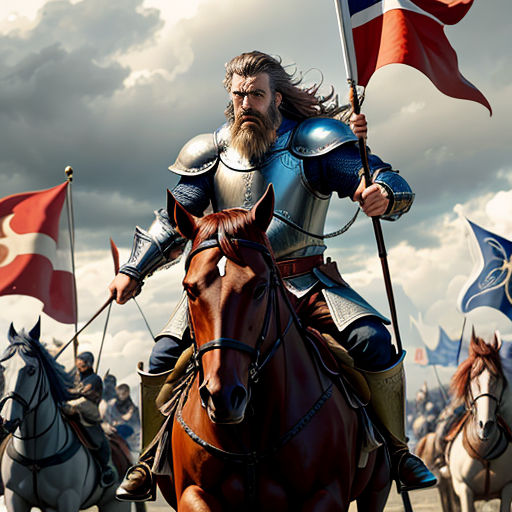
One of the earliest references to King Arthur can be found in the historical text "The History of the Britons” by Nennius, a Welsh monk. Nennius portrays Arthur as a warrior, not a king, who led the Britons in a series of battles against the Saxon invaders, establishing his valor and strategic prowess.
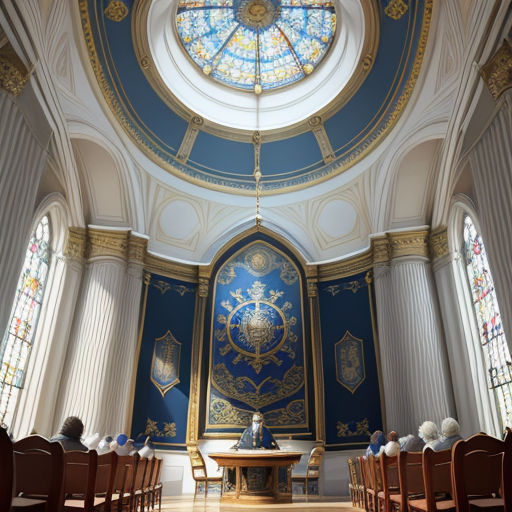
Later, Geoffrey of Monmouth’s “History of the Kings of Britain” presented Arthur as a gracious, unifying king. The book describes how Arthur brought not just military victory but political stability, economic prosperity, and cultural flourishing to Britain, establishing the image of Arthur as a noble ruler.
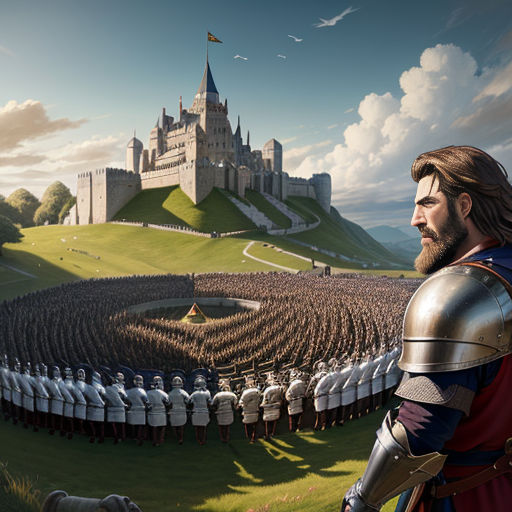
Sir Thomas Malory’s "Le Morte d'Arthur" further elaborates on the persona of King Arthur. Arthur, in this text, is portrayed as a character of great morality, embodying qualities like courage, loyalty, and humility. His character becomes symbolic of the ideal man, lauded for his knightly virtues.
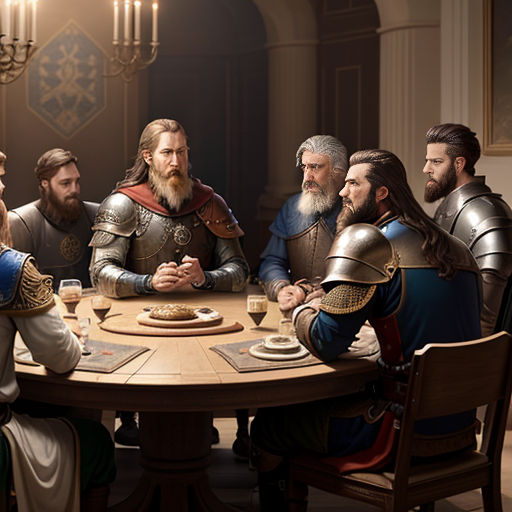
The Arthurian legend also speaks of the iconic Round Table, where Arthur would meet with his knights, establishing an atmosphere of equality — a revolutionary concept for the feudal society of that era. The Round Table signifies Arthur’s commitment to justice, fairness, and communal decision-making.

The concept of Arthur's magical sword, Excalibur, given to him by the Lady of the Lake, infuses elements of mysticism into the narrative. Its representation as a divine gift suggests a heavenly endorsement of Arthur's rule, further reinforcing his legitimacy.
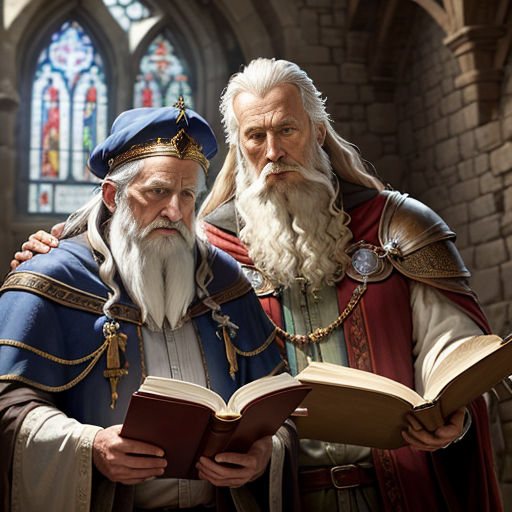
Arthur's trusted advisor, the wizard Merlin, is another significant character in the legend. Merlin, with his wisdom, assists Arthur in his rule, acknowledging Arthur's righteousness and infusing the story with an element of enchantment.

The legend of Arthur's quest for the Holy Grail speaks to the inherent piety and morality of King Arthur and his knights. It shows the lengths to which they would go to attain divine association, signifying their high moral standards.

Additionally, King Arthur's famous affair with his queen, Guinevere, and the subsequent fallout, portrays Arthur as a tragic figure — a man who is not immune to the trials and tribulations of human experience, making him relatable, despite his kingly status.

Arthur's story concludes with his mortal wound in the Battle of Camlann, yet his end is left ambiguous. It is believed that he was taken to Avalon, a mystical island, to heal and return in Britain’s hour of need, leaving his existence as an enduring hope.

In conclusion, the legend of King Arthur carries a far greater weight than a simple folk tale. It presents an idealized portrayal of leadership and chivalry, advocating for justice, unity, and nobility. It is a cultural symbol, embodying the hopes and aspirations of the people.

So, believing in the legend of King Arthur is not merely about accepting the existence of a legendary figure. Rather, it's about embracing the values that Arthur represents — the courage to face adversities, the wisdom to rule justly, and the humility to treat everyone as equals.

The Arthurian narrative remains relevant even to this day; its themes of perseverance, compassion, and equality resonate with contemporary societal ideals. To believe in King Arthur is to believe in the potential for goodness and nobility in humanity, making his legend timeless.
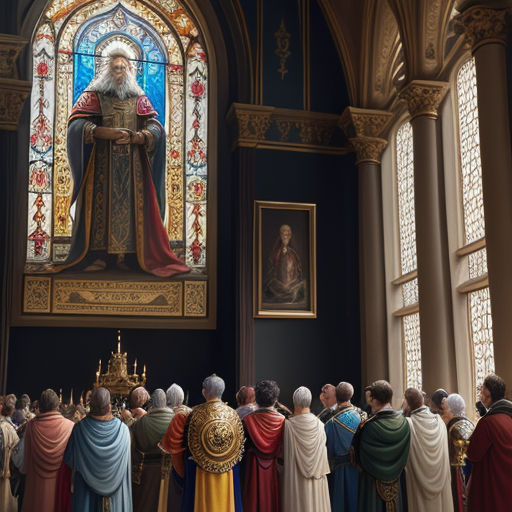
As historical texts and literary works continue to depict the exploits of King Arthur and his knights, his legend lives on, capturing the imagination of countless people. It is a testament to the enduring power of mythology and the collective memory of mankind.
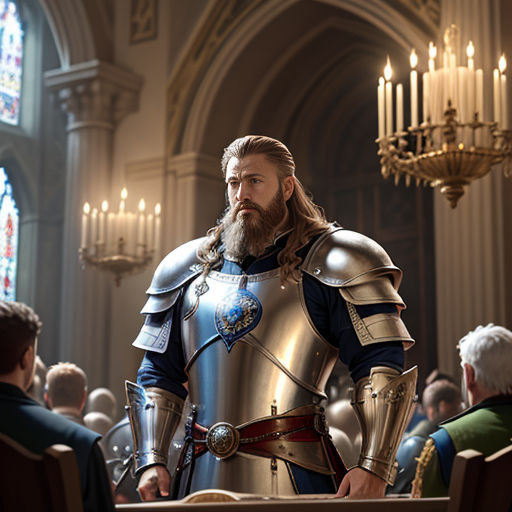
The legend of King Arthur thus serves as a beacon, inviting us to believe not only in the existence of such a character but also in the virtues he embodies. It allows generations to aspire to the nobility, courage, and unity that Arthur represents.

Hence, believing in King Arthur is an affirmation of our trust in the power of legends and their capacity to inspire the best in humanity. As long as the legend of Arthur lives, so too, do the virtues he epitomizes.

To conclude, textual evidence from historical and literary works pointedly suggests the existence of King Arthur. But more than that, these texts bring to life a character that symbolizes an ideal society characterized by equality, justice, unity, and aspiration for moral excellence.

This is why the legend of King Arthur merits belief. It is not just about the man, but about the ideals he represents. As we delve into the depths of this timeless tale, we find a reflection of our own aspirations for a just and noble society.
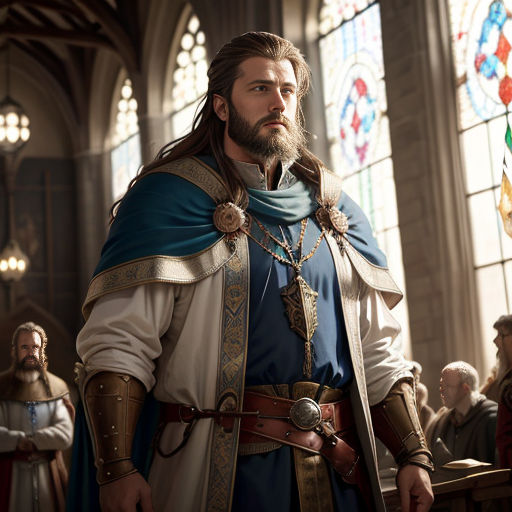
King Arthur remains a symbol of the human potential for greatness, not through power, but through virtue. Regardless of the historical accuracy of the legend, its pervasive influence on literature, art, and culture is undeniable.

The legend of King Arthur is not just a tale of high adventure and romance. It is a guidebook for the human spirit, a mirror reflecting our deepest desires for leadership, nobility, and unity. It is a saga that resonates with timeless truths about humanity.

And perhaps, most importantly, it gives us hope. That even in the face of insurmountable odds, we can rise above it all, and like King Arthur, we can make a difference in our world, no matter how big or small.

The legend of King Arthur is an enduring piece of our cultural heritage, a beacon from the past that continues to illuminate our path. It encourages us to believe in ideals, to strive for honor, and to carry the torch of integrity.

The values that King Arthur stands for are universal and unchanging. They are as applicable in the modern world as they were in the times when the legend first took shape. To believe in King Arthur is to believe in these timeless truths.
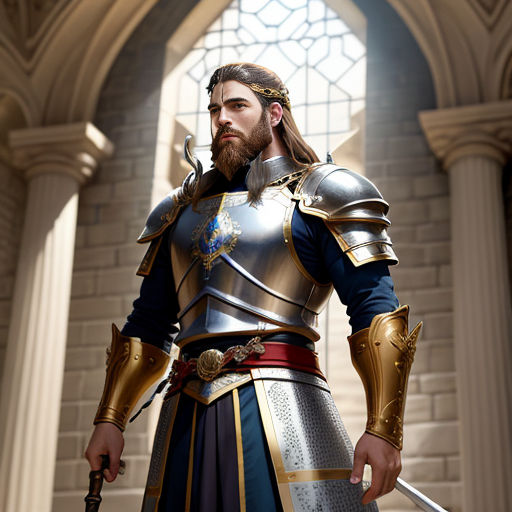
So let's continue to celebrate and believe in Arthur's legend, as a reminder of our capacity for nobility, courage, and unity. For in doing so, we are not just honoring a legendary king but also, more importantly, the quintessential human virtues he embodies.
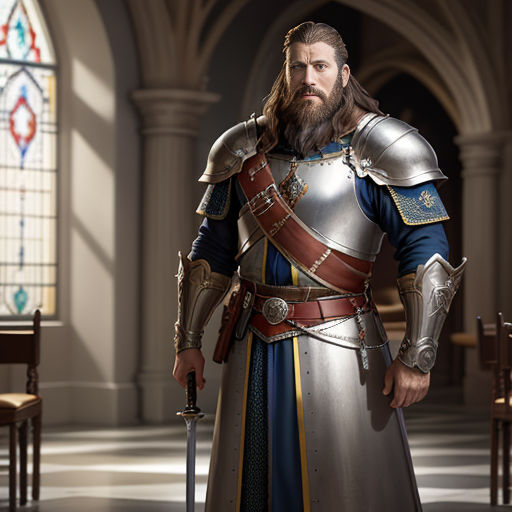
King Arthur's story is not just a chronicle of a bygone era, but a timeless saga that speaks to the heart of humanity. It transcends the boundary of time, to inspire, guide, and ignite the spark of nobility within us all.